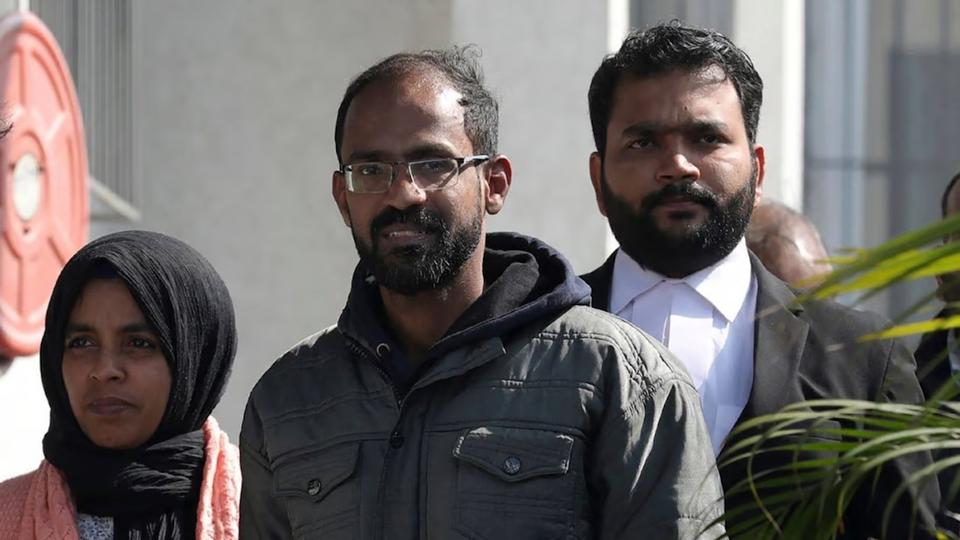Siddique Kappan was accused by authorities of breaching anti-terror laws for reporting on a teenage Dalit girl's rape and death in 2020 that sparked outrage and massive protests.
 Siddique Kappan said he was "feeling good" after his release on Thursday, but added that his prolonged detention "is justice delayed and half-baked justice".
(AFP Archive)
Siddique Kappan said he was "feeling good" after his release on Thursday, but added that his prolonged detention "is justice delayed and half-baked justice".
(AFP Archive)
An Indian journalist who was arrested two years ago on charges of conspiring to incite riots in a northern Indian state has walked out of jail.
Siddique Kappan, who worked for a regional Malayalam news website, was arrested in Uttar Pradesh state in October 2020 while on his way to report on the death of a lower-caste Dalit teenager who had been gang raped days before.
"I am feeling good. But, this is justice delayed and half-baked justice. The two years were very tough," he told local broadcaster NDTV after his release on Thursday morning.
"Journalism is not a crime," he added.
The state authorities alleged that Kappan and his co-accused were traveling to Hathras with the purpose to disrupt the area's peace. They also claimed that he had close ties to the Popular Front of India (PFI), a Muslim organisation accused by the federal government of having ties to "terrorist" outfits, which the organisation denies.
The PFI was banned by the Indian government last year.
Kappan was also booked under the Unlawful Activities Prevention Act (UAPA).
Journalist #SiddiqueKappan walks out on bail After 850 days of incarceration.
— DW Samachar (@dwsamachar) February 2, 2023
he has been in jail for more than 2 years and was arrested while going to cover #HathrasCase.#Kappan #Journalismisnotacrime #Press #Media #Yogi @myogiadityanath pic.twitter.com/PTFT0e3eNk
Granted bail
Kappan walked out of jail months after the Supreme Court granted him bail in September last year. He, however, was not released because he was required for an investigation in a money laundering case, which was investigated by India's Enforcement Directorate.
In December 2022, the journalist was also granted bail in a money laundering case.
On September 14, 2020, a 19-year-old Dalit girl was gang raped in the state's Hathras area, resulting in serious injuries and her death two weeks later. The incident triggered widespread outrage and protests across the country.
The caste system in India divides Hindus into four main categories – Brahmins, Kshatriyas, Vaishyas, and Shudras. Outside of this are the Dalits, who are regarded as "untouchables" or socially excluded from upper-caste Hindus.Source: TRTWorld and agencies
Social media is bold.
Social media is young.
Social media raises questions.
Social media is not satisfied with an answer.
Social media looks at the big picture.
Social media is interested in every detail.
social media is curious.
Social media is free.
Social media is irreplaceable.
But never irrelevant.
Social media is you.
(With input from news agency language)
If you like this story, share it with a friend!













0 Comments